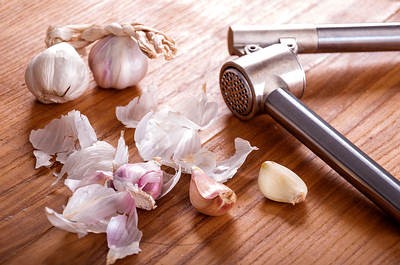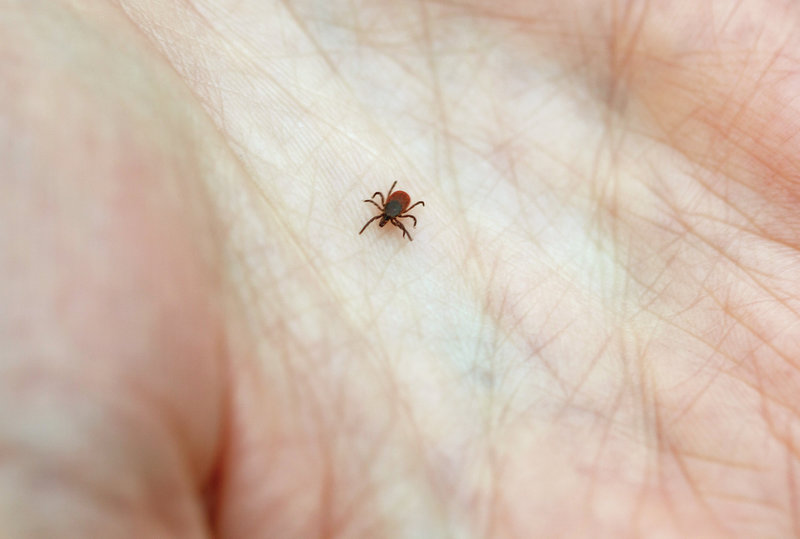Top 10 Herbs and Spices for Your Heart
Heart disease refers to problems that affect the structure and functioning of the heart as well as blood vessels.
Some common types of heart conditions include coronary artery disease, ischemic heart disease, irregular heart rhythm, atherosclerosis, angina, myocardial infarction (commonly known as a heart attack), hypertensive heart disease, congenital heart disease, and peripheral artery disease.
The risk of developing heart problems increases with factors like excessive smoking, a sedentary lifestyle, aging, a family history of heart disease, high blood pressure, high cholesterol, diabetes, obesity and excessive alcohol or caffeine intake.
Some common symptoms that may signal heart trouble include persistent coughing, chest discomfort, anxiety, fatigue, rapid or irregular pulse and shortness of breath.
As the heart functions 24×7, it is important to keep it healthy. Improved heart functioning depends highly on the quality of blood and blood flow.
A healthy, balanced diet and a healthy exercise regime can help you reach your goal. You can also incorporate certain herbs and spices into your diet to improve your heart health.
Here are the top 10 herbs and spices for your heart.
1. Garlic

Garlic is highly beneficial for heart health due to its anti-inflammatory, antithrombotic and antiplatelet properties.
A 2006 review study published in the American Society for Nutrition journal showed a strong correlation between garlic consumption and heart benefits.
Garlic is effective in treating raised serum total cholesterol, raised bad (low-density lipoprotein or LDL) cholesterol, increased platelet aggregation and hypertension, thus reducing the risk of heart disease.
- Eat 1 or 2 freshly crushed garlic cloves daily.
- You can opt to take garlic supplements. Consult your doctor for the correct dosage.
Note: Garlic may interfere with certain medications due to its blood-thinning properties. Consult your doctor before taking it.
2. Turmeric

Turmeric has a compound called curcumin that possesses powerful antioxidant and anti-inflammatory properties. Curcumin enhances cardiovascular health and reduces the risk of many diseases related to the heart.
Turmeric helps increase blood circulation and prevents blood clotting to prevent heart attacks. It even controls inflammation that can lead to heart disease. In addition, it prevents hardening of the arteries by inhibiting fat oxidation and lowering cholesterol.
- Use turmeric in your cooking or drink a glass of warm turmeric milk daily.
- As a nutritional supplement, you can take 250 to 600 mg standardized curcumin capsules 3 times daily. Consult your doctor for proper dosage.
3. Hawthorn

Hawthorn is another well-known herb for heart health. It helps in blood vessel dilation, which lowers blood pressure. It also increases blood flow to the heart and improves cardiac muscle contractions, thus leading to an overall stronger heart that functions better. In addition, its anti-arrhythmic effect helps steady the heartbeat.
In a 2010 review by Pharmacognosy Review, researchers studied clinical trials involving hawthorn and the herb’s safety profile.
They concluded that hawthorn may potentially represent a safe, effective, nontoxic agent in the treatment of cardiovascular disease and ischemic heart disease.
The recommended amount ranges from 160 to 1,800 mg per day in 2 or 3 divided doses. As it may interact with certain medications, consult your doctor before taking this supplement.
4. Hibiscus

Followers of traditional medicine rely on hibiscus for the treatment of heart disease. Water extracts of hibiscus flowers affect atherosclerosis mechanisms, blood sugar, lipids and blood pressure. All these elements help improve overall heart health.
A 2003 study published in the Journal of Agricultural and Food Chemistry found that hibiscus extract helped inhibit the development of atherosclerosis in cholesterol-fed rabbits. High cholesterol is one of the main causes of heart disease.
- Drink a cup of hibiscus tea twice daily.
- You can also take 100 to 250 mg of standardized extract twice daily. Consult your doctor for the correct dosage.
5. Cayenne

Cayenne contains capsaicin, which makes this spice a powerful antioxidant. It also has the potential to dilate blood vessels, combat oxidation and prevent blood clots.
All these factors contribute to good heart health. Capsaicin helps reduce triglycerides and LDL cholesterol, two of the major risk factors of heart disease.
In addition, it helps burn calories and aids weight loss, which reduces the risk of developing heart problems.
- Add ½ to 1 teaspoon of cayenne pepper to a cup of hot water. Drink it a few times a week.
- You can take capsaicin supplements, 2,000 to 4,000 IUs every other day. However, always consult a doctor before taking supplements.
Note: It is important not to take cayenne in excess. Pregnant women, breastfeeding mothers and children should avoid this spice.
6. Green Tea

Green tea is very good for your heart due to its flavonoids and antioxidants. It improves the health of cells that form the innermost lining of the heart and blood vessels. This plays a key role in reducing cholesterol and triglyceride levels.
A 2008 study published in the European Journal of Cardiovascular Prevention and Rehabilitation reported that regular intake of green tea improves blood vessel functioning. By drinking more than 5 cups of green tea daily, you can lower the risk of death from a heart attack or stroke by 26 percent.
- Drink 4 to 5 cups of green tea (preferably caffeine-free) daily.
- You can even take 100 to 750 mg standardized green tea extract per day after consulting your doctor.
7. Cinnamon

This well-known spice can provide protection against heart disease. It inhibits the release of inflammatory fatty acids from the blood’s platelet membranes, which helps maintain the proper thickness of the blood. This in turn reduces high blood pressure, which can damage the arteries and other organs.
In addition, it helps lower triglycerides as well as LDL cholesterol, which is important for your heart to function properly.
- For medicinal benefits, consume ½ to 1 teaspoon of cinnamon powder per day. Sprinkle cinnamon powder in your oatmeal, tea, smoothies, soups and salads.
- Add a cinnamon stick while making a cup of warm tea, such as black, ginger or any other herbal tea.
Note: People allergic to cinnamon must avoid this spice. In addition, those taking blood thinners must consult their doctor before taking this spice.
8. Ginger

Ginger has natural blood-thinning and anti-inflammatory properties that can lower LDL cholesterol. The active ingredient in ginger is gingerol, a compound that helps relax blood vessels and stimulate blood flow throughout the body.
In a 2000 study published in the Journal of Nutrition, researchers found that regular intake of ginger extract reduces plasma cholesterol, inhibits LDL oxidation and attenuates development of atherosclerosis.
- Make ginger tea and drink it hot or cold, 2 or 3 times a day.
- Use fresh ginger root in your cooking by adding it to sauces, stir-fries, soups and even fruit and vegetable drinks.
- You can also take a ginger supplement, after consulting your doctor.
Note: If you take blood thinners, consult your doctor about how much ginger you should consume in food or supplement form.
9. Fenugreek

Fenugreek has antioxidant and cardioprotective benefits, making it an important herb to promote heart health. There are several compounds in fenugreek that can reduce cholesterol, treat clogged arteries, lower blood pressure and prevent heart attacks.
Moreover, it helps stabilize blood sugar and prevent obesity, two major factors behind heart disease.
- Soak 1 teaspoon of fenugreek seeds in water overnight. The next morning, drain the water and eat the soaked seeds on an empty stomach. Do this daily.
- You can even drink 1 to 2 cups of fenugreek seed tea daily.
10. Coriander

Both the fresh leaves and seeds of coriander are good for your heart due to its antiplatelet activity and natural antioxidant properties. It helps reduce platelet aggregation, which can cause an impairment of blood flow to the heart.
Coriander seeds have a hypolipidemic action in the body, which helps reduce LDL cholesterol and triglycerides. A 2008 study published in the Journal of Environmental Biology proves this fact. Coriander is also useful in diabetes management, a major risk factor of heart disease.
- Add 1 teaspoon of coriander seed powder to a cup of water. Boil the water, strain it and drink it once daily.
- Also, try to use fresh coriander and coriander seeds in your cooking.
Source: Top 10 Home Remedies
“Top 10 Herbs and Spices for Your Heart”


